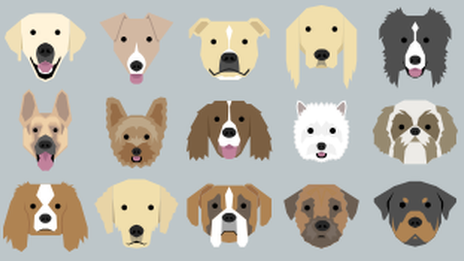Londoners out with their unusual pets
- Published
If you were out and about near Oxford Street earlier you may have come across an unusual sight - a raccoon apparently being walked in central London.
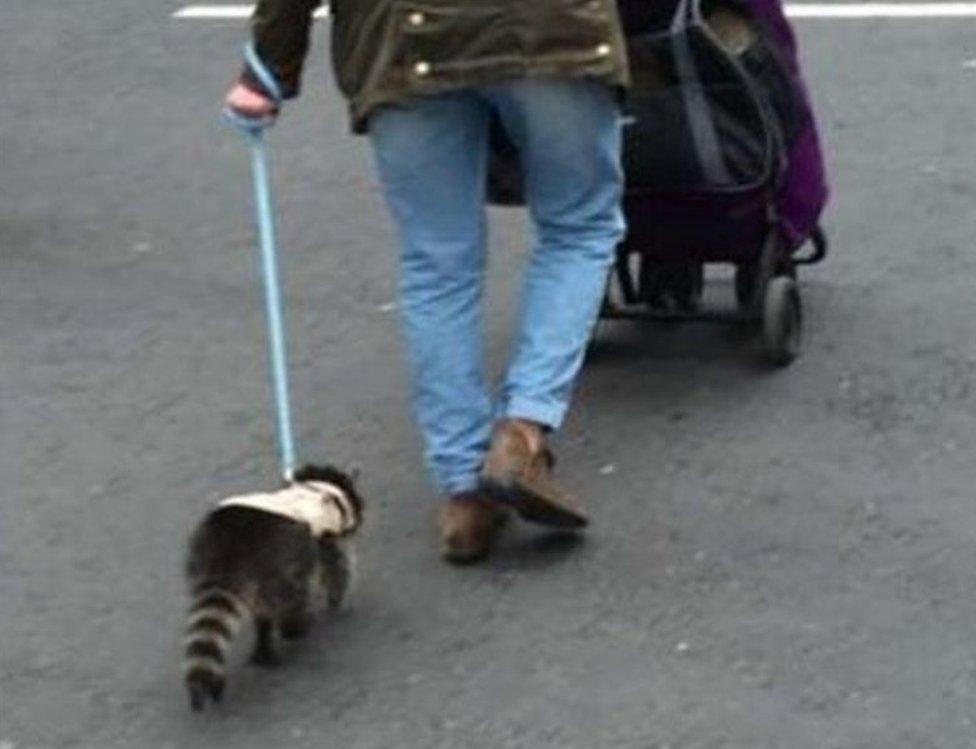
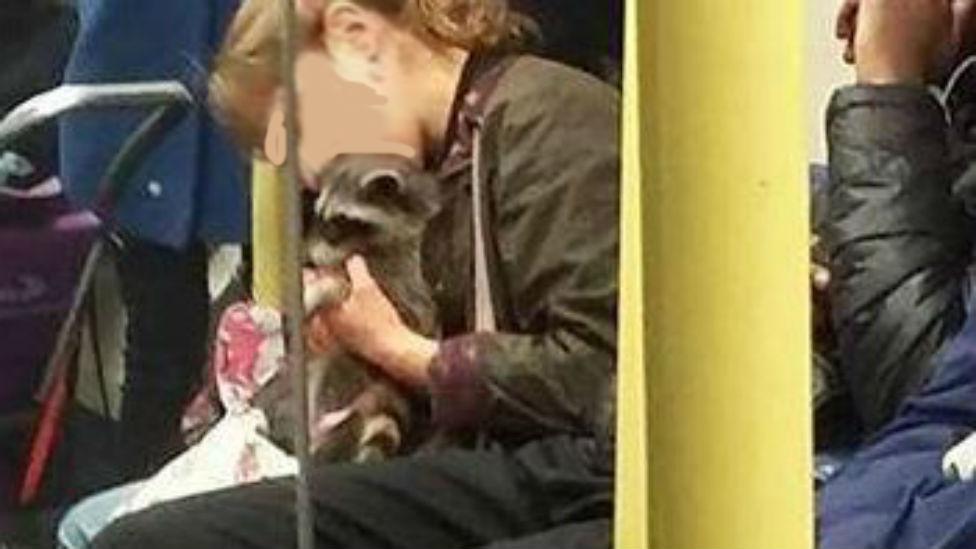
The raccoon was apparently also spotted taking The Tube on Saturday night.
In the picture captured near Oxford Street, the pet appears to be dressed in a jacket to protect it from the cold.
London is no stranger to curious animal sightings. A ferret was spotted being taken for a walk in Camden last year.
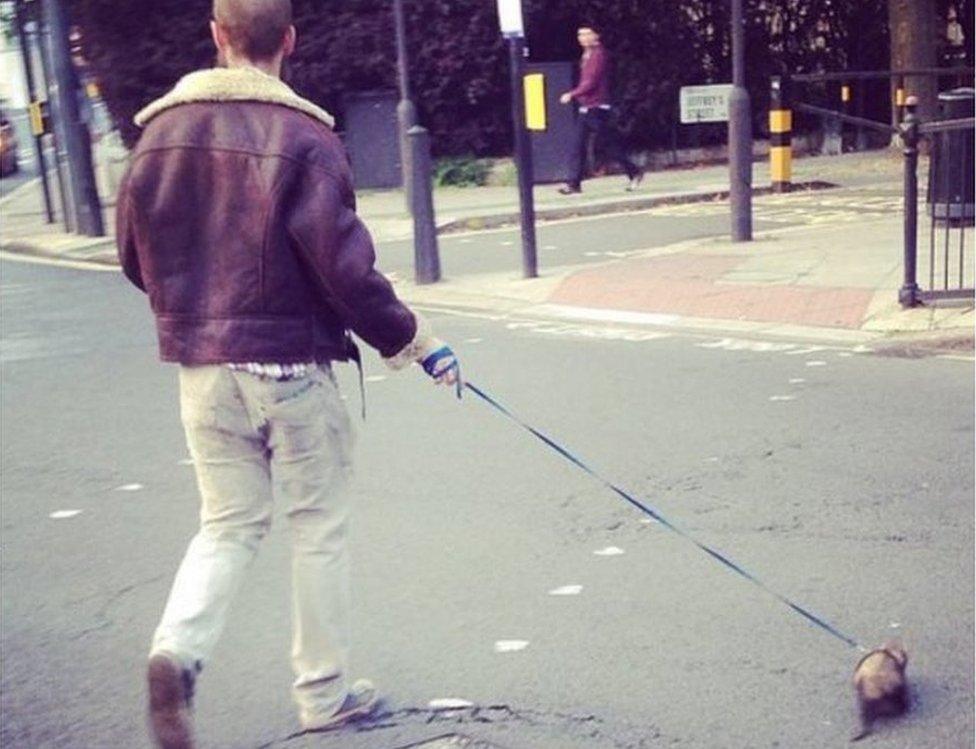
Hopping on the Central Line in June you may have seen what looked like a red-dyed pigeon contentedly snoozing on its owner's shoulder.
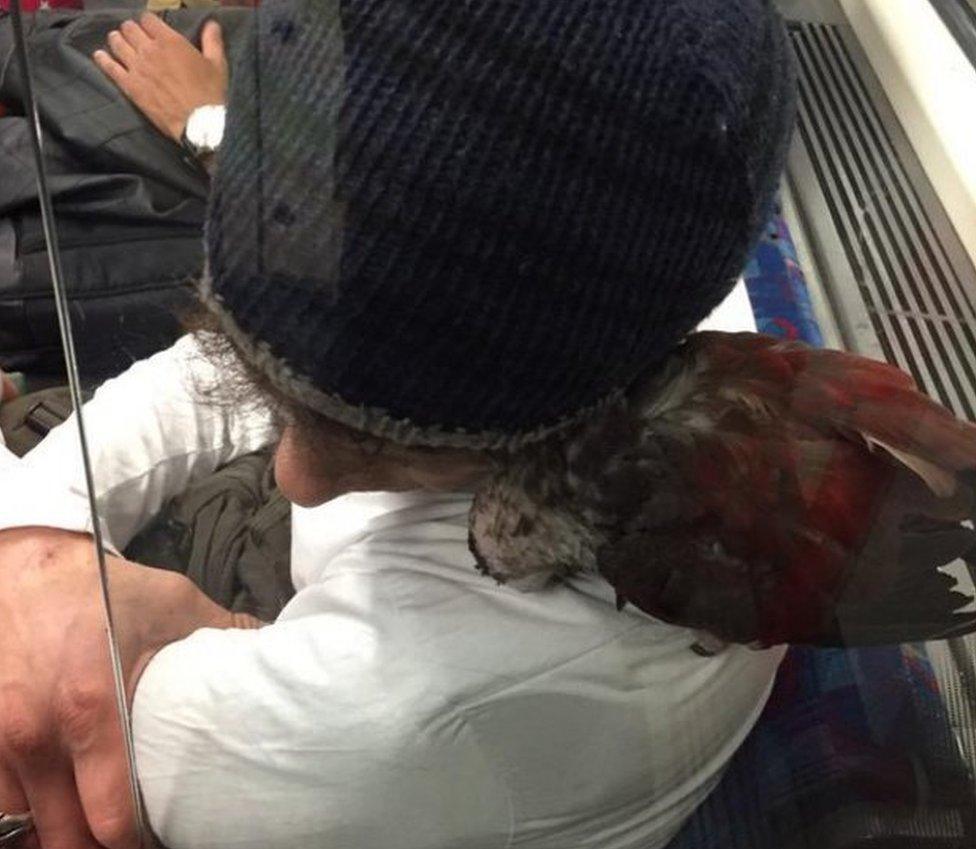
These sheep were spotted going for a stroll in Brockwell Park near Brixton this summer.
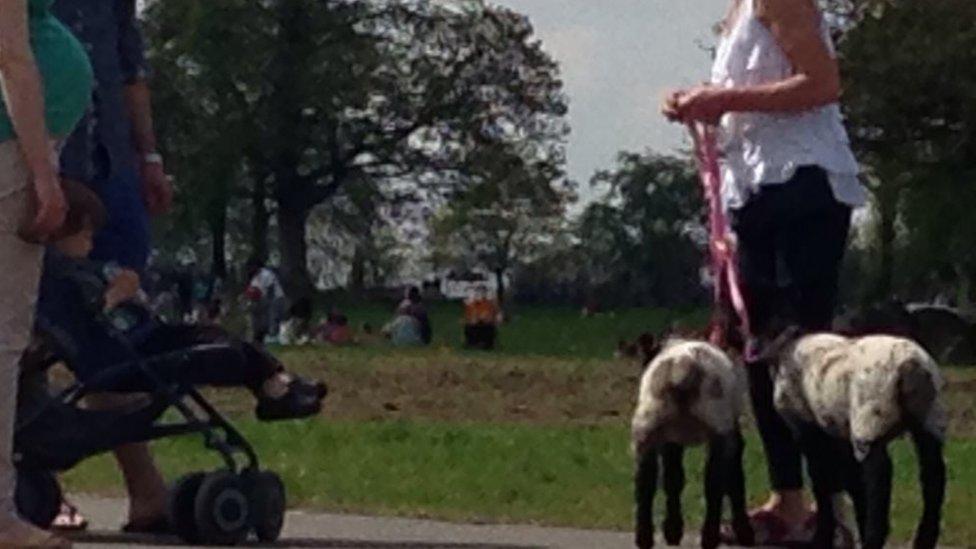
A receptionist contacted BBC News to say she saw the raccoon out with its owner on the Tube.
She said: "It was about five o'clock on Saturday night. I think I was on the Central Line. This raccoon was just sitting happily on her lap. She seemed to be very loving towards it and some people wanted to hold it, and she let them, but most people just left them to themselves."
Transport for London initially said taking racoons on the Tube was "probably not in our conditions of carriage, external", however, a spokesman later clarified there was no specific restriction as such.
"Inoffensive animals" that do not appear to present a danger to passengers may be transported on the Tube providing the owner keeps them on a lead and under control as Tube staff are not allowed to handle them.
The RSPCA warned raccoons do not make good pets and it is difficult for the charity to re-home them adequately.
A spokesman said: "We would strongly discourage anyone from buying or keeping them. Sadly, the needs of raccoons cannot adequately be met within typical household environments.
They need a great deal of space, can be carriers of diseases including rabies and if they escape or are released into the wild they are a high invasive non-native species risk to the UK."
- Published21 October 2015
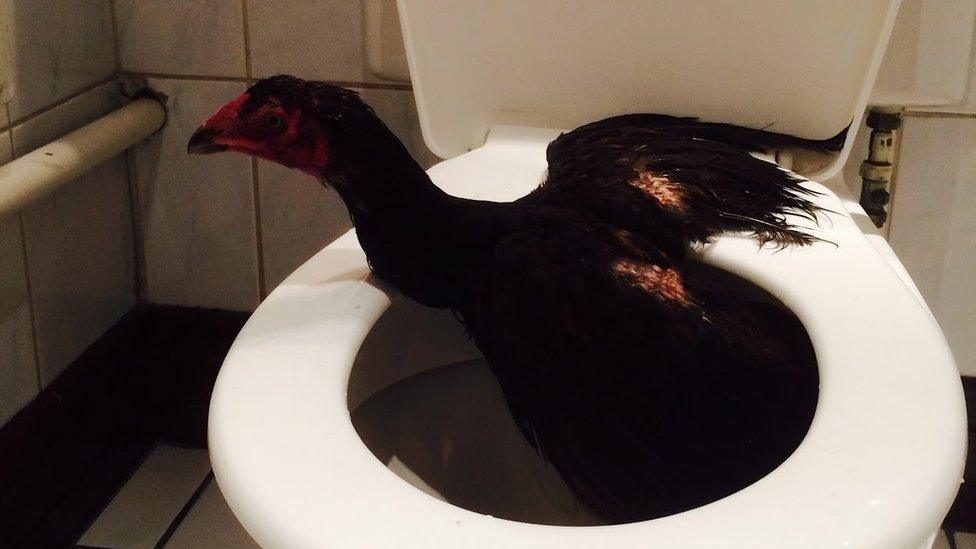
- Published18 January 2015
